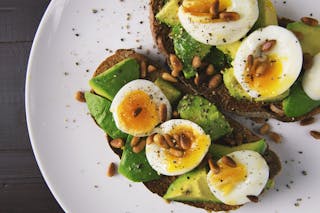
If your husky isn't eating, it could be for a number of reasons. They could be sick, they could be stressed, or they could simply not be hungry. If your husky is sick, they may not have an appetite because they're not feeling well. If your husky is stressed, they may not be eating because they're feeling anxious or worried. If your husky simply isn't hungry, they may not be eating because they don't need the food. Whatever the reason, if your husky isn't eating, it's important to take them to the vet to rule out any medical problems.
Is there anything I can do to help my husky regain its appetite?
There are a number of potential causes for a loss of appetite in dogs, and any change in eating habits should be investigated by a veterinarian. Huskies are particularly prone to developing gastrointestinal issues, so if your dog is suddenly not interested in food, this could be a sign of something serious.
There are a few things you can do at home to try and stimulate your husky's appetite, but if there is no improvement after a few days, it is best to seek professional help. Feeding your dog small, frequent meals may be more appealing than one large meal, and adding some wet food or chicken broth to their kibble can make it more enticing. Making sure they have access to fresh water at all times is also important, as dehydration can lead to a loss of appetite.
If your husky is generally healthy but just not very hungry, you can try increasing their exercise level – a good walk or run will often work up an appetite! – or providing some special treats that they only get when they eat their regular food. In some cases, a change in environment or routine can lead to a loss of appetite, so if your dog has recently been moved to a new home or there has been some upheaval in their life, this may be the cause.
Whatever the reason for your husky's lack of appetite, it is important to monitor their weight and eating habits closely. If you are concerned that they are not getting enough nutrition, talk to your veterinarian about the best way to proceed.
What are the consequences of my husky not eating?
The consequences of my husky not eating can be serious. If your husky doesn't eat, it can lead to weight loss, dehydration, and even malnutrition. Without proper nutrition, your husky's immune system can't function properly, and he or she can become susceptible to serious health problems. If your husky doesn't eat for a prolonged period of time, it can even be fatal.
The best way to prevent the consequences of your husky not eating is to make sure he or she has a balanced, nutritious diet. If you're unsure about what kind of food to feed your husky, talk to your veterinarian. Your vet can recommend a food that's specifically formulated for huskies and help you determine how much to feed your dog based on his or her activity level and weight.
If you think your husky isn't eating because he or she isn't feeling well, call your veterinarian right away. Some medical conditions, such as kidney disease or cancer, can cause dogs to lose their appetite. If your husky is experiencing vomiting or diarrhea, this can also lead to dehydration and weight loss. These are all potentially serious medical conditions that require prompt treatment, so it's important to call your vet if you notice your husky isn't eating.
In some cases, the reason your husky isn't eating may be behavioral. If your dog is usually a good eater but suddenly stops eating, it may be due to stress or anxiety. Dogs can become anxious or stressed for a variety of reasons, such as a change in their routine or a move to a new home. If you think your husky's lack of appetite is due to a behavioral issue, talk to your veterinarian or a certified animal behaviorist for help.
Whatever the reason for your husky not eating, it's important to take action to prevent the consequences of weight loss, dehydration, and malnutrition. If you're unsure about the cause of your husky's lack of appetite, or if he or she isn't responding to treatment, call your veterinarian right away.
What medical conditions could be causing my husky to not want to eat?
If your husky does not want to eat, it could be due to a number of different medical conditions. For example, if your husky is experiencing pain, it may not want to eat because it associates eating with the pain. Additionally, if your husky is nauseous, it may not want to eat because it does not feel well. Additionally, if your husky has a decreased appetite, it may not want to eat because it does not feel hungry. Additionally, if your husky has an intestinal obstruction, it may not want to eat because it is experiencing pain or because it is feeling full. Additionally, if your husky has pancreatitis, it may not want to eat because it is experiencing pain. If your husky is experiencing any of these medical conditions, it is important to take it to the vet so that it can be properly diagnosed and treated.
Could my husky's food be the reason it's not eating?
If your husky isn't eating, it could be for a number of reasons. One possibility is that the food you're giving it isn't appealing to it. Huskies are notorious for being picky eaters, so it's important to make sure that you're giving them food that they'll actually want to eat. If you're not sure what kind of food to give your husky, you can always ask your vet for advice.
Another possibility is that your husky isn't feeling well. If your husky has been vomiting or has diarrhea, it's likely that it has an upset stomach and doesn't want to eat because it knows that it will just make it feel worse. If this is the case, you should take your husky to the vet to make sure that there isn't anything seriously wrong.
It's also possible that your husky is simply not hungry. If you've been feeding it the same amount of food every day, it might just be that it doesn't need as much food as it used to. Try reducing the amount of food you're giving it and see if that helps.
Whatever the reason, if your husky isn't eating, it's important to take action. Not eating can lead to serious health problems, so it's best to take your husky to the vet to rule out any potential medical issues.
Is my husky's environment causing it to not want to eat?
Most huskies are high energy dogs that love to play. They are also very intelligent and can become easily bored if their environment isn’t stimulating enough. A husky that isn’t given enough physical and mental exercise is likely to become anxious and may start to exhibit some destructive behaviors, like chewing on furniture or not wanting to eat.
If your husky isn’t eating, it’s important to rule out any medical causes first. If your dog is otherwise healthy, there’s a good chance that the problem is behavioral. One of the most common reasons huskies stop eating is because they’re bored.
If your husky is used to eating a lot of food and suddenly starts eating less, it could be because it’s not getting enough exercise. Huskies are high-energy dogs and need a lot of activity to stay happy and healthy. A husky that isn’t given enough to do is likely to become bored and anxious, which can lead to a loss of appetite.
If you think your husky’s environment is the problem, there are a few things you can do to make it more stimulating. First, make sure your dog is getting enough exercise. An hour of exercise a day is a good rule of thumb, but some huskies need even more than that. You can also try providing your dog with some new toys or puzzles to keep them entertained. Lastly, make sure you’re spending enough time with your dog. Huskies are social animals and need human interaction to stay happy.
If you’ve ruled out medical causes and made changes to your husky’s environment but it still isn’t eating, it’s time to consult with a veterinarian or animal behaviorist. They will be able to help you determine the root of the problem and come up with a plan to get your dog eating again.
What changes in my husky's behavior should I look for that could indicate a loss of appetite?
Loss of appetite in a husky is usually accompanied by changes in behavior. Some common behavioral changes that may indicate a loss of appetite include:
- lethargy and lack of energy - sleeping more than usual - decreased interest in activities - decreased interaction with other dogs or people - withdrawing from social situations - hiding - decreased appetite for food and water
If you notice any of these changes in your husky's behavior, it is important to take them to the vet to rule out any underlying medical causes. If there is no medical cause for the appetite loss, there are a few things you can do to try and stimulate your husky's appetite.
- Make sure they are getting enough exercise. A husky that is bored or doesn't have enough outlets for their energy is more likely to lose their appetite.
- Try feeding them smaller meals more often throughout the day instead of one or two large meals.
- Introduce new and interesting foods into their diet. This can be anything from different flavors of dog food to cooked meats and vegetables.
- Make sure their food is fresh and their bowls are clean. Some dogs will refuse to eat from a bowl that has leftover food in it from the previous meal.
If you have tried all of these things and your husky still isn't eating, it is important to contact your vet to discuss other options.
How can I tell if my husky is really not hungry or if there's something else going on?
There are a few things you can look for when trying to determine if your husky is really not hungry or if there's something else going on. If your husky is avoiding eye contact, has a loss of appetite, is restless or agitated, is whining or whimpering, or is shaking or trembling, these may be signs that something is wrong and your husky may not be hungry. If your husky is displaying any of these behaviors, it's best to take him to the vet to rule out any medical causes.
What should I do if I think there's something wrong with my husky and it's not eating?
If you think there may be something wrong with your husky and it is not eating, there are a few things you can do to help.
First, make sure there is nothing blocking its throat or preventing it from swallowing. If there is something caught in its throat, huskies are able to cough it up on their own or you can try to remove it with a doggy toothbrush or your fingers. If the object is too far down or your husky is having difficulty coughing it up, take them to the vet.
Next, check to see if your husky is dehydrated. Gently pull up on the skin on the back of their neck. If the skin stays up or takes a few seconds to fall back into place, they are likely dehydrated and will need fluids. You can give your husky ice chips or water mixed with a little bit of chicken broth to help rehydrate them. If they are severely dehydrated, they will need to be hospitalized and given fluids intravenously.
If your husky is not dehydrated, the next thing to consider is if they are in pain. If they are, they may not want to eat because it hurts to chew or swallow. Check their gums to see if they are pale or white, which can be a sign of anemia or blood loss. You may also notice your husky crying out in pain or acting restless. If you think your husky is in pain, take them to the vet.
Finally, consider if your husky is just not hungry. If they have recently been sick or had surgery, they may not have much of an appetite. Some huskies are also picky eaters and may not want to eat if their food is not to their liking. If you think this might be the case, try offering your husky a variety of different foods and see if anything appeals to them.
If your husky is not eating and you cannot determine the cause, take them to the vet for an examination.
Frequently Asked Questions
Why does my husky eat so much food?
It could be because they are bored or it could be that your husky is trying to tell you something. If your husky consistently eats a lot even if they don’t seem hungry, there might be some underlying issues that need to be addressed.
How long can a husky go without food?
A husky can go up to five to seven days without food but not water.
Do Siberian Huskies eat more than they need?
Yes, Siberian Huskies do eat more than they need, depending on the amount of exercise they get.
Are Huskies picky eaters or fussy eaters?
The majority of huskies will be picky eaters. They will want very specific things, such as a lot of meat or a specific type of food. Very few owners who have huskies say that their dogs are fussy about eating. The usual issue for a dog that is picky about what he eats is that the owner does not provide him with enough varied and interesting options. If you feed your husky a limited number of foods, then he will start to become choosy about what he eats. When you introduce new items into his diet, he may be hesitant at first, but eventually will learn to enjoy them.
Is it bad for a husky to eat fast?
Yes, fast eating can lead to many negative side effects and one condition called gastric dilatation volvulus (GDV) can even be fatal. When a husky wolfs down his food, he may be ingesting too much air leading to gas, bloating, and eventually, GDV.



